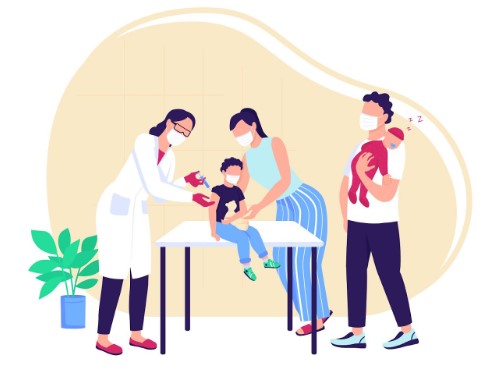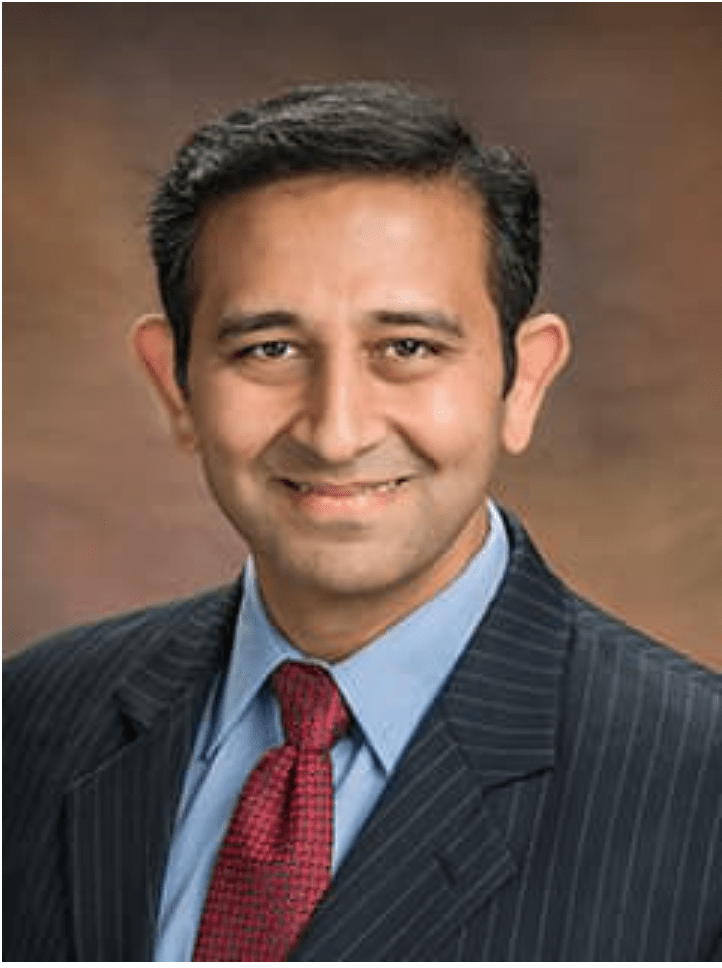
Did you know that Singapore ranks in the top 10 healthcare systems worldwide? And we’re not talking just good — we’re talking high standards, easy access, and cutting-edge facilities. It’s the kind of system you want to be part of if you’re a doctor.
But if you’re trained outside of Singapore and you’re dreaming of practicing in this impressive healthcare hub, the process might seem a bit like navigating a maze. It’s all doable, though! Let’s break down the whole thing, step by step, with tips straight from a local expert, Dr. Yam.
Understanding Singapore's Medical Registration: More Than Just Paperwork
So, here’s the thing: before you can put on that white coat in Singapore, there’s one gatekeeper you’ll need to know—Singapore Medical Council (SMC). These folks oversee every doctor practicing in Singapore. They handle your medical registration and basically decide if you’re fit to work here. Registration might sound like a bunch of paperwork, but it’s much more than that. Think of it as your official pass to practice medicine in Singapore.
Conditional vs. Full Registration: What You Need to Know
The SMC offers two types of registration, and each one has its own set of perks:
- Conditional Registration: This is your starting point if you’re a foreign-trained doctor. You’re allowed to practice but under supervision. Kind of like having a learner’s permit when you’re driving—you’re in, but not totally on your own yet.
- Full Registration: Now, this is the dream. With full registration, you’re officially in the driver’s seat and can practice independently.
To get conditional registration, you need a medical degree recognized by the SMC. Here’s where things get a bit tricky: the SMC only recognizes degrees from specific universities. You’ll find this “approved list” under the Second Schedule of the Medical Registration Act. So, if you’re a graduate from one of these approved schools, nice—you’re on the right track. If not, don’t worry, you still have options!
Temporary Registration for Short-Term Opportunities
Okay, let’s say you’re looking for a shorter gig, maybe a fellowship or some specialized training. You could qualify for temporary registration. It’s basically a short-term pass that lets you work in Singapore for one or two years. This route won’t lead to a long-term career, but if you’re looking to level up your skills or gain experience, it’s a great option. Temporary registration is common for short stints, but heads-up—it doesn’t mean you can stay and work forever.
Getting Your Degree Recognized in Singapore: A Make-or-Break Step
Ready for step two? Your degree has to make the cut. No ifs, ands, or buts about it. Having a recognized degree is absolutely essential if you want that all-important conditional registration. But what if your medical school isn’t on the approved list?
Primary Degree Recognition: The Basics
If your degree is on the SMC-approved list, congrats! You’re already ahead. The approved list includes degrees from several countries, like the US, UK, Canada, and Australia. Graduates from these schools are already on track for registration. But if your school didn’t make the list, don’t give up yet.
Alternate Routes for Non-Recognized Degrees
So, here’s where it gets interesting. If your primary degree doesn’t make the cut, you still have a shot. Some postgraduate qualifications can help you qualify for conditional registration. For instance, if you’re certified by the US Medical Boards in a specialty like anesthesiology, you might be in luck. This secondary route is worth checking out if you’re serious about working in Singapore, even if your degree didn’t tick the right box.
Finding a Medical Job in Singapore: Where to Begin
All set with your registration? Great, now you need a job. In Singapore, you can’t just waltz into a hospital and start working. You’ll need to secure a position in one of the SMC-approved hospitals or health clusters to get started. Let’s break it down.
Steps to Secure a Position in Singapore
- Apply for Registration and Jobs Simultaneously: Here’s a pro tip: start applying for both registration and jobs at the same time. You’ll need both to get the ball rolling, so there’s no point in waiting for one before starting the other.
- Look Into Approved Hospitals and Clusters: Most foreign-trained doctors end up working within one of Singapore’s big healthcare clusters, like the National Health Group or SingHealth. These clusters have a range of hospitals, so start your search here.
It’s a bit of a balancing act—you need registration to work, but you also need a job offer to complete the registration process. Just make sure you’re working on both fronts so you’re ready to go when an opportunity pops up.
Residency can be a big step if you’re an international medical graduate. Want to go deeper into a specialty? Here’s how Singapore’s residency programs can help you do that.
Singapore’s Three Main Residency Programs
Singapore’s residency programs fall under three healthcare clusters: National Health Group, National University Health System, and SingHealth. Each one has its own strengths, so look for the one that aligns with your specialty or career goals.
How to Qualify for Residency in Singapore
To get into residency, you need two things: conditional registration and experience working as a junior doctor in Singapore. With these under your belt, here’s what you can do:
- Reach Out to Residency Program Directors: They’re a great resource for program-specific details and can help you with tips on applying.
- Gain Experience as a Junior Doctor: This experience is often required, and it shows directors that you’ve already got hands-on experience working in Singapore.
Residency spots are competitive, so make sure you’re well-prepared. The more experience you have as a junior doctor, the better your chances.
Working as a Specialist in Singapore: It’s Possible, But Not Easy

If you’re already specialized and hoping to continue in your field, there’s good news—you might just have a way in. But don’t expect it to be a walk in the park.
Eligibility Criteria for Specialists
To work as a specialist, you’ll need a recognized postgraduate qualification. The SMC approves certain qualifications from countries like the UK, the US, and Australia. But if your degree isn’t on their list, you could still work as a general practitioner or a junior doctor in your field, under a fully registered specialist.
SMC Exceptions and High-Demand Specialties
While it’s rare, the SMC does sometimes make exceptions. If your specialty is in high demand, or if you bring unique expertise, there might be room for flexibility. But let’s be real—these exceptions are few and far between. Generally, the SMC sticks to its rules pretty tightly.
Fellowships and Short-Term Training: Expand Skills Without Full Registration
Maybe you’re not looking for a permanent gig. Or maybe you’re just hoping to get a taste of Singapore’s healthcare scene. Fellowships and short-term training are awesome for that.
Temporary Registration for Fellowship Roles
Fellowships let you work in Singapore temporarily, usually for one to two years. With temporary registration, you can gain experience in a high-demand specialty without fully qualifying as a long-term doctor. It’s a perfect fit for those looking to specialize or learn without committing to permanent relocation.
Pros and Cons of Fellowships in Singapore
- Pros: Hands-on experience in a world-class healthcare system.
- Cons: Once your fellowship is over, you’ll need to leave unless you’re eligible for conditional or full registration.
Fellowships are ideal if you want experience without the long-term commitment. Just know that once the fellowship wraps up, you’re done unless you’re registered to stay.
Adapting to Singapore’s Medical Work Culture: Tips from an Insider
Being a doctor in Singapore isn’t just about your technical skills. It’s also about understanding the unique work culture. Here’s some straight talk from Dr. Yam, a senior doctor who knows the ropes.
Cultural Adjustments to Expect
- High Work Standards: Singapore’s medical system is known for its high standards and dedication. Expect a busy, demanding environment where excellence is expected.
- Team-Oriented Approach: Unlike some places where individual achievement is the focus, Singapore values collaboration and teamwork.
For international doctors, adaptability is huge. Dr. Yam notes that those who are open-minded and willing to adjust to the local culture tend to have an easier time and a more rewarding experience.
Key Takeaways for Aspiring Doctors in Singapore
Here’s a quick rundown on how to practice medicine in Singapore:
- Check If Your Degree or Qualification is Recognized: Start by reviewing the SMC’s Second Schedule of approved schools and qualifications.
- Secure Conditional Registration: This lets you work under supervision and is the entry point for most IMGs.
- Find a Job in an Approved Hospital or Cluster: Having a job offer is essential alongside registration.
- Consider Fellowship Options: Fellowships give you short-term experience without needing permanent registration.
- Be Ready to Adapt: The work culture is unique, and being flexible can make your journey much easier.
Each step requires patience and preparation, but if you’re committed, Singapore offers a fantastic environment for international medical professionals.

Conclusion
Singapore’s healthcare system is known for its excellence, and joining as an international doctor might be challenging, but it’s absolutely within reach. From getting your degree recognized by the SMC to landing a job and adapting to a high-standard work culture, each part of the process adds up to an exciting and rewarding career path.
Hopefully, this guide has made things clearer and shown you that, while the journey to becoming a doctor in Singapore isn’t simple, it’s definitely possible with some hard work and determination. Whether you’re in it for the long haul or just a short-term fellowship, Singapore’s healthcare community welcomes those who are willing to learn, adapt, and grow.
Ready to achieve your dream career as an International Medical Graduate (IMG) doctor? Explore IMG Secrets to uncover tips and strategies for a successful journey. Connect with an IMG Secrets Expert Doctor and get personalized guidance to help you map out your career path in medicine!

Dr. Rajeev Iyer MBBS, MD, MS, FASA (USA)
Associate Professor of Anesthesiology
University of Pennsylvania,
Philadelphia, USA
Disclaimer: The views and opinions expressed in this article are solely those of the author and do not reflect the official policy or position of the University of Pennsylvania or any other institution or entity.

